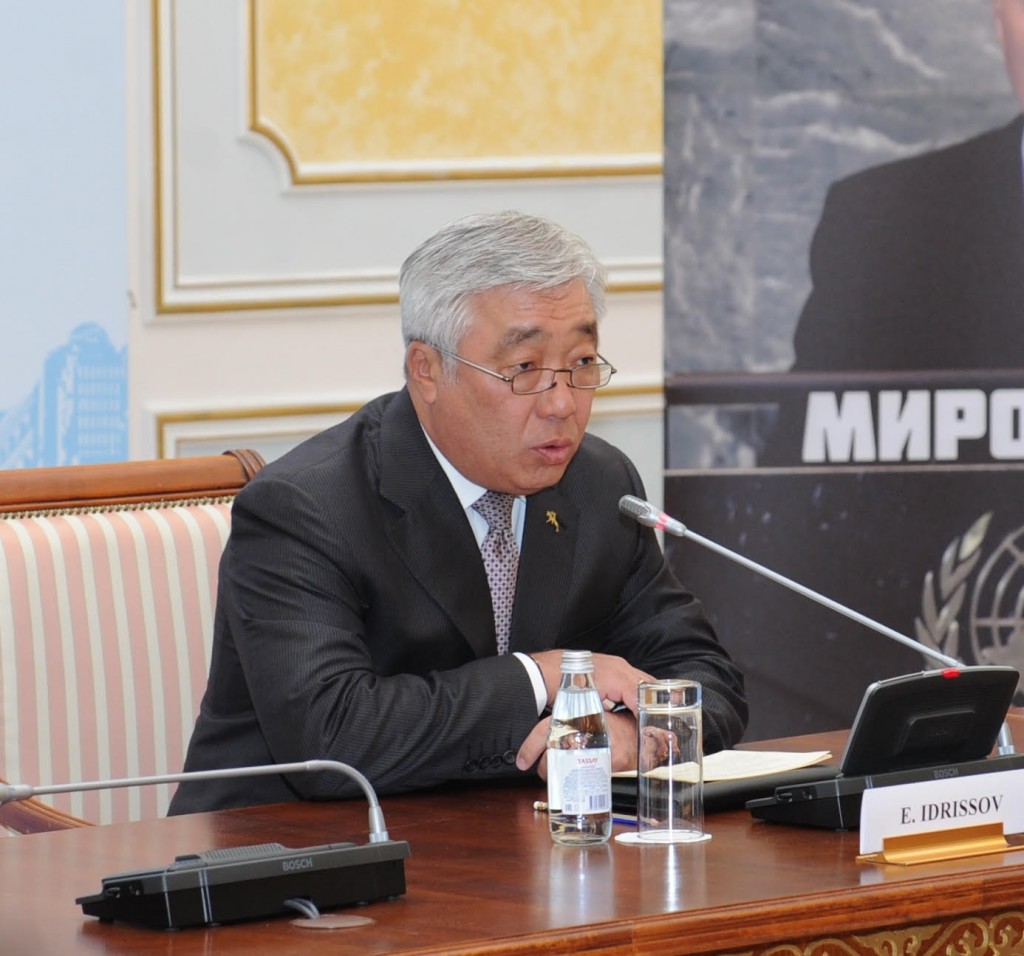Kazakhstan’s 100 Concrete Steps initiative was launched in the spring as a direct response to worsening regional and global conditions. Increased tensions between the major powers had led to tit-for-tat sanctions which had an impact far beyond the countries directly involved. Slowing growth across the world had seen the price of energy and raw materials fall. Europe, Kazakhstan’s biggest trading partner, remained in economic trouble, as has been underlined by the difficulties of putting in place a rescue package for Greece.
It can be tempting, when faced with such unexpected storms, to put aside long-term goals and focus all efforts on getting through the crisis safely. But faced with these strong geopolitical and economic headwinds, Kazakhstan’s solution was to accelerate the country’s modernisation plans.
The 100 Concrete Steps programme, called Plan of the Nation, was unveiled soon after President Nursultan Nazarbayev’s re-election and is designed to provide the strong national platform needed to overcome both short-term challenges and achieve the country’s ambition of joining the top 30 developed countries by 2050. It is a comprehensive reform package that builds on past progress to drive improvements in all the country’s institutional pillars.
Among the detailed measures are reforms to create a more effective and professional public service. Open recruitment, better training, and pay and promotion linked to performance will be introduced. Experts are to be brought in from the private sector and, where needed, from outside Kazakhstan to ensure the state sector works more effectively for citizens and the country.
Similar far-reaching reforms including the expansion of trial by jury and increased rights for defendants are being introduced to strengthen the rule of law. The entire judicial process is becoming more transparent. Judges will have to serve, for the first time, a probation period and won’t be appointed without gaining relevant experience. The involvement of distinguished judges and lawyers from abroad will again help bring up standards to international levels.
Recruitment of the police is to be overhauled and new and existing officers are to be judged against tough professional criteria. Training will be improved while the creation of local police forces accountable to communities will increase trust and responsiveness.
The programme also sets out concrete steps to improve the performance of the economy by strengthening protection for investors, cutting red tape, making tax more transparent and supporting entrepreneurship. Customs and planning regulations are to be streamlined and the electricity industry and transport links modernised. The ultimate goal is to build up and strengthen the country’s middle class as the backbone of further economic and political development.
A major drive to increase exports of goods and services is being launched along with the creation, through attractive tax concessions, English system of law, and help for investors, of a new Astana International Financial Centre. Together with Kazakhstan’s full membership of the WTO which comes into force later this year, it underlines the country’s commitment to building a world-class and diversified economy.
Proposals to improve health and education provision are also central to the reforms. An overhaul of the way health services are provided and funded will see access and quality strengthened. Standards in schools including literacy are to be improved, universities given greater autonomy and, by gradually switching courses to English, increase the skills of Kazakh students while attracting more talented young people from overseas. A highly educated workforce will be needed for the long-term success of the reform programme.
Across the board as well, there are radical measures to increase openness and accountability and devolve decision-making, wherever possible, to a local level. Departments and agencies will have to publish regular information so citizens can judge their performance.
The switch to services being provided electronically will be speeded up to cut delays and reduce the potential for corruption. Indeed, the determination to root out all corruption, which President Nazarbayev has identified as an important goal for the country, is a constant theme of the reforms.
Taken together, these 100 Steps mean there’s nothing short of a quiet revolution taking place in Kazakhstan. Seasoned economists and observers, including Russia’s Sberbank chief German Gref who said he had experienced a “culture shock” at the depth and scope of Kazakhstan’s reform agenda, have forecast it will lead to a radically different nation. In fact, such is the scope of reforms that hundreds of legislative amendments will have to be introduced in the fall session of the Parliament. January 1, 2016 is set to usher in a stronger, more agile and modern country.
By setting a goal of becoming one of the 30 most developed countries Kazakhstan has raised its sights very high. This detailed programme shows that, despite the current storms, the country is determined not to be blown off course.
The author is Minister of Foreign Affairs of Kazakhstan. The opinion was first published by The Diplomat on July 25, 2015.

